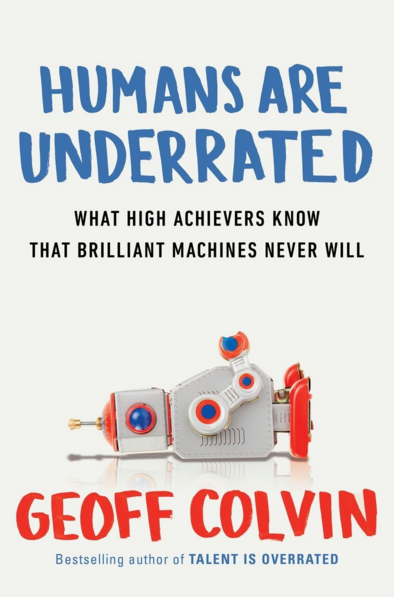
I wrote The Edison Effect: Success Strategies for the Information Age in 1995 to take on the predominant belief that automation technologies were eliminating more jobs than they were creating. The book advised that those who were open to learning new technologies would flourish in the new information economy, while those who held onto the past would have a difficult time in the job market. That advice has worked for the past 20 years.
Fast forward to today as we are coming out of another recession. The news is filled with stories of high unemployment and recent college graduates still living with their parents. Whenever I hear someone singing the Unemployment Blues, I offer the same advice that I did in the nineties, “Don’t worry,” I say. “Technology always creates more jobs than it displaces.”
Then I read Humans Are Underrated by Geoff Colvin, who obliterated my argument by pointing out that the same technologies that had wiped out unskilled labor had leveled its sights on highly skilled occupations such as doctors, lawyers, journalists, and engineers. Had the book ended there, I’d probably be looking for some roof to jump off of. But instead, the rest of the book explores solutions to the problem.
The first thing Colvin suggests is that we change our transitional vocabulary. Rather than asking the futile question “What can’t computers do?” he suggests a pivot to: “What don’t we want computers to do?” The new question forces us to think about how we want to integrate automation technologies into our personal and professional lives.
Take the medical profession, for example. We may be perfectly fine with replacing our doctors with machines to diagnose or perform surgery, but would we want to automate our nurses? In other words, although it’s possible to program a computer to look into our eyes and offer a soothing touch, is that what we really prefer?
Chapters 5 and 8 piqued my interests because they discuss the skills required in this new, human economy.
Chapter 5: The Critical 21st Century Skill, describes our need to develop empathy. It hit me hard because marketers must have empathy for their audiences instead of treating them as enemy combatants. And of course, my heart went pitter-patter when I read Chapter 8: The Extraordinary Power of Story.
Humans Are Underrated is a book that links automation technology, the future of work, and the things that make us human. Instead of being a downer, I was pleased to find that it relies on the same uplifting message as The Edison Effect. The future is filled with new jobs, but they’re reserved for those eager to learn new skills.
Like storytelling.